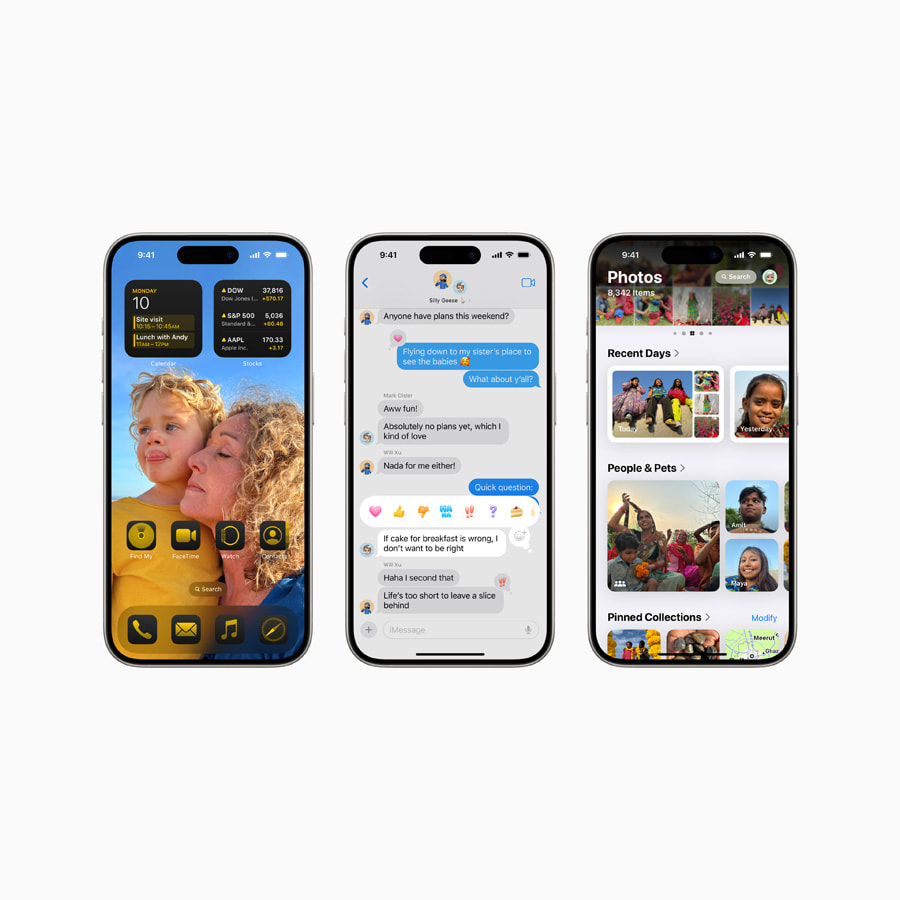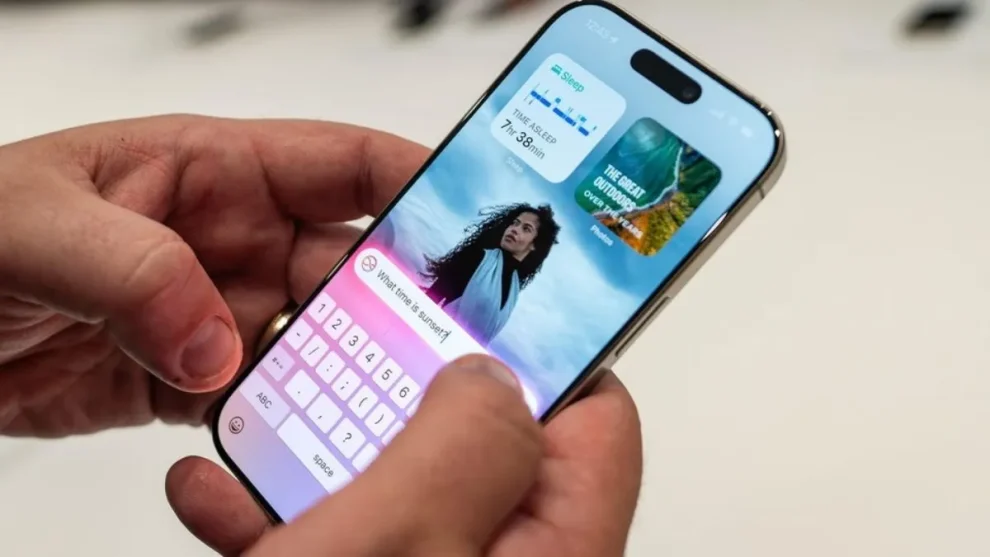Apple is gearing up to launch iOS 18.1, a game-changing update that promises to elevate the iPhone user experience to unprecedented heights. This forthcoming release is poised to introduce a suite of groundbreaking features, with Apple Intelligence and iPhone Mirroring taking center stage. As anticipation builds within the tech community, let’s delve into the five most exciting innovations that iOS 18.1 is expected to bring to millions of iPhones worldwide.
At the forefront of iOS 18.1’s revolutionary features is Apple Intelligence, a sophisticated AI system that’s set to transform how users interact with their devices. Unlike anything we’ve seen before, Apple Intelligence is not just another voice assistant – it’s a comprehensive AI framework deeply integrated into the iOS ecosystem.
Apple Intelligence is designed to learn and adapt to user behavior, offering personalized suggestions and automations that streamline daily tasks. From predicting your next action based on context to offering smart replies in messages, this AI assistant is always one step ahead. The system utilizes on-device machine learning, ensuring that your personal data remains private and secure.
One of the most impressive aspects of Apple Intelligence is its ability to understand and execute complex, multi-step commands. For instance, users can say, “Plan a weekend getaway to the mountains, book a cabin, and create a packing list” – and Apple Intelligence will seamlessly coordinate across multiple apps to accomplish the task.

Moreover, Apple Intelligence introduces a new level of natural language processing, allowing for more conversational interactions. Users can engage in back-and-forth dialogues with the AI, asking follow-up questions or providing additional context without having to restart the conversation.
Industry analysts are already hailing Apple Intelligence as a potential game-changer. “This could be the most significant leap in mobile AI we’ve seen to date,” says tech analyst Sarah Chen. “Apple’s approach to integrating AI at the system level, while maintaining a strong focus on privacy, sets a new standard for the industry.
In an era where users juggle multiple devices, Apple is introducing iPhone Mirroring – a feature that promises to bridge the gap between your iPhone and other Apple devices. This innovative functionality allows users to cast their iPhone screen to iPads and Macs, creating a seamless, multi-device ecosystem.
iPhone Mirroring goes beyond simple screen sharing. It enables users to interact with their iPhone apps directly from their iPad or Mac, leveraging the larger screen real estate and different input methods. For instance, you could use your Apple Pencil on an iPad to edit a photo stored on your iPhone, or type a long iMessage reply using your Mac’s keyboard while your iPhone stays in your pocket.
The feature also introduces a new level of continuity between devices. Start a task on your iPhone, and with a simple gesture, you can transfer it to your iPad or Mac to continue working. This fluid transition between devices is expected to significantly boost productivity for users who frequently switch between their Apple devices.
“iPhone Mirroring is set to redefine how we think about device boundaries,” explains tech journalist Mark Anderson. It’s not just about displaying your phone screen elsewhere – it’s about creating a unified experience across all your Apple devices.
Building on Apple’s commitment to user privacy, iOS 18.1 introduces a suite of enhanced privacy controls that give users unprecedented transparency and control over their data.
A standout feature is the new Privacy Dashboard, which provides a comprehensive overview of how apps are using your data. Users can see which apps have accessed their camera, microphone, location, and other sensitive information, complete with timestamps and duration of access.
iOS 18.1 also introduces more granular permission settings. Users can now grant temporary access to certain features – for example, allowing an app to use your location for just 15 minutes. After the specified time, the permission automatically revokes, ensuring that apps don’t have unnecessary access to your data.
Another significant addition is the App Privacy Report, which details the third-party domains that apps are contacting. This feature helps users understand where their data might be sent and allows them to make more informed decisions about the apps they use.
These new privacy features demonstrate Apple’s ongoing commitment to user data protection,” notes privacy advocate Elena Rodriguez. By giving users more visibility and control, Apple is setting a new standard for privacy in the mobile ecosystem.
iOS 18.1 introduces Adaptive UI, a revolutionary approach to user interface design that dynamically adjusts based on user behavior and preferences. This feature leverages machine learning to analyze how you use your device and subtly optimizes the interface to enhance your experience.
For example, if you frequently use certain apps at specific times of the day, Adaptive UI might reorganize your home screen to make those apps more accessible during those periods. The feature also learns from your interaction patterns, adjusting button sizes, text readability, and color contrasts to suit your preferences and needs.
Adaptive UI extends to system-wide elements as well. The Control Center, for instance, will dynamically update to show the toggles and shortcuts you use most frequently. Notifications will be prioritized and grouped based on your engagement patterns, ensuring that the most relevant information is always at your fingertips.
Adaptive UI represents a paradigm shift in mobile interface design,” says UX designer Raj Patel. “It’s not just about making things look good – it’s about creating an interface that understands and anticipates user needs.”
The fifth major feature coming to iOS 18.1 is Collaborative Notes, a powerful upgrade to the built-in Notes app that transforms it into a real-time collaboration powerhouse.
Collaborative Notes allows multiple users to work on the same note simultaneously, with changes syncing in real-time across all devices. The feature introduces a chat function within notes, enabling collaborators to discuss changes without leaving the app. Users can also assign tasks, set deadlines, and track progress directly within notes.
One of the most innovative aspects of Collaborative Notes is its integration with Apple Intelligence. The AI can suggest relevant information from your other notes or even from the web as you’re working on a collaborative document. It can also summarize long notes, highlight key points, and even suggest structure improvements.
Furthermore, Collaborative Notes introduces a version history feature, allowing users to review past edits and revert changes if needed. The app also supports rich media embeds, including live links to other Apple apps like Numbers and Keynote.
Collaborative Notes has the potential to revolutionize how teams work together on iOS devices,” comments productivity expert Jason Lee. “It combines the simplicity of a notes app with the power of a full-fledged collaboration tool, all enhanced by AI.”
As the release date for iOS 18.1 approaches, excitement in the Apple community continues to build. These five features – Apple Intelligence, iPhone Mirroring, Enhanced Privacy Controls, Adaptive UI, and Collaborative Notes – represent a significant leap forward in mobile operating system capabilities.
While Apple has not yet announced an official release date for iOS 18.1, industry insiders expect it to launch in the coming months, following the traditional fall release cycle. As always, the update will be free for compatible iPhone models.
The introduction of these features, particularly the integration of advanced AI capabilities, signals Apple’s vision for the future of mobile computing. It’s a future where our devices understand us better, adapt to our needs, and seamlessly integrate into our daily lives while maintaining a strong commitment to privacy and security.
As we await the official unveiling of iOS 18.1, one thing is clear: the iPhone experience is about to undergo a transformative evolution. Stay tuned for more updates and in-depth analyses as we approach the release of this groundbreaking update.
















Add Comment